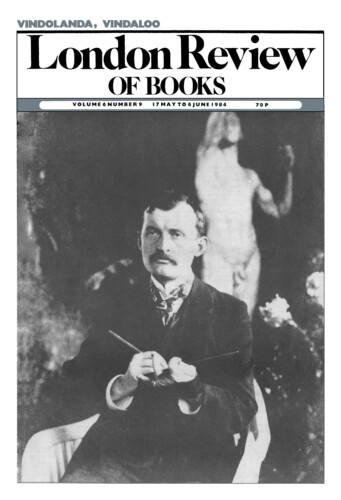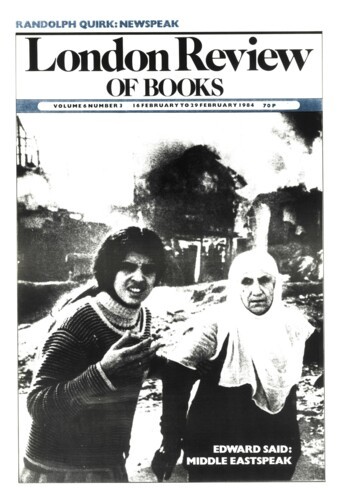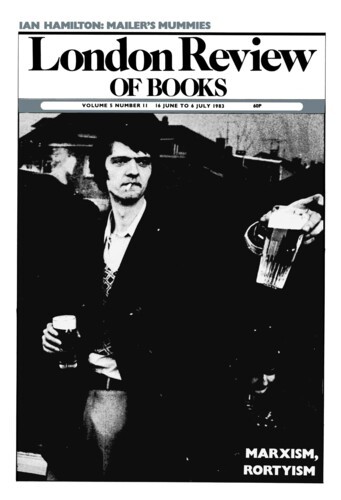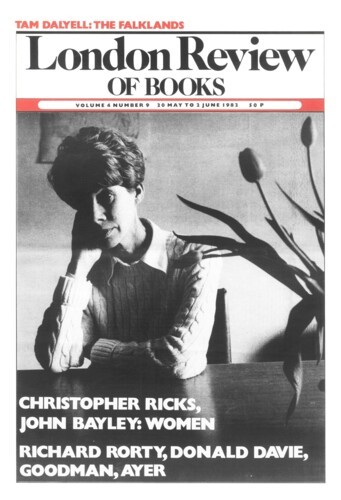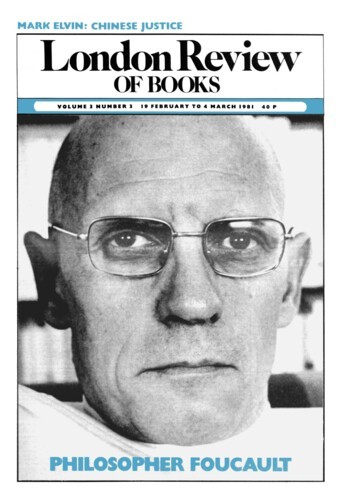What’s it all about?
Richard Rorty, 17 May 1984
In a recent polemic against Derrida, John Searle said that the present was a sort of ‘golden age of the philosophy of language’. This is certainly true. It is an era of system-building, in which dozens of immensely complex structures are being constructed. The older rhetoric of analytic philosophy, which decried system-building, big fat books (as opposed to thin, stiletto-like journal articles), and the development of philosophical ‘schools’, has been put aside. Nobody now talks about ‘teamwork’ or ‘bite-size problems’. Rather, every few years the problematic of philosophy of language is altered by the intrusion of yet another brilliantly original account of meaning and reference, one which starts off by denying a premise which had previously been assumed to be part of the rules of the game. Philosophy of language nowadays is an area in which a lot of extremely bright people, inspired by the challenge of friendly competition with equals, are busy creating schools – bodies of students prepared to defend the ‘central insight’ of their teacher by marvellously detailed accounts of modal contexts, conditionals, indexicals, and so on. No area of analytic philosophy demands, or gets, more concentrated intelligence. None generates more intellectual excitement.–
